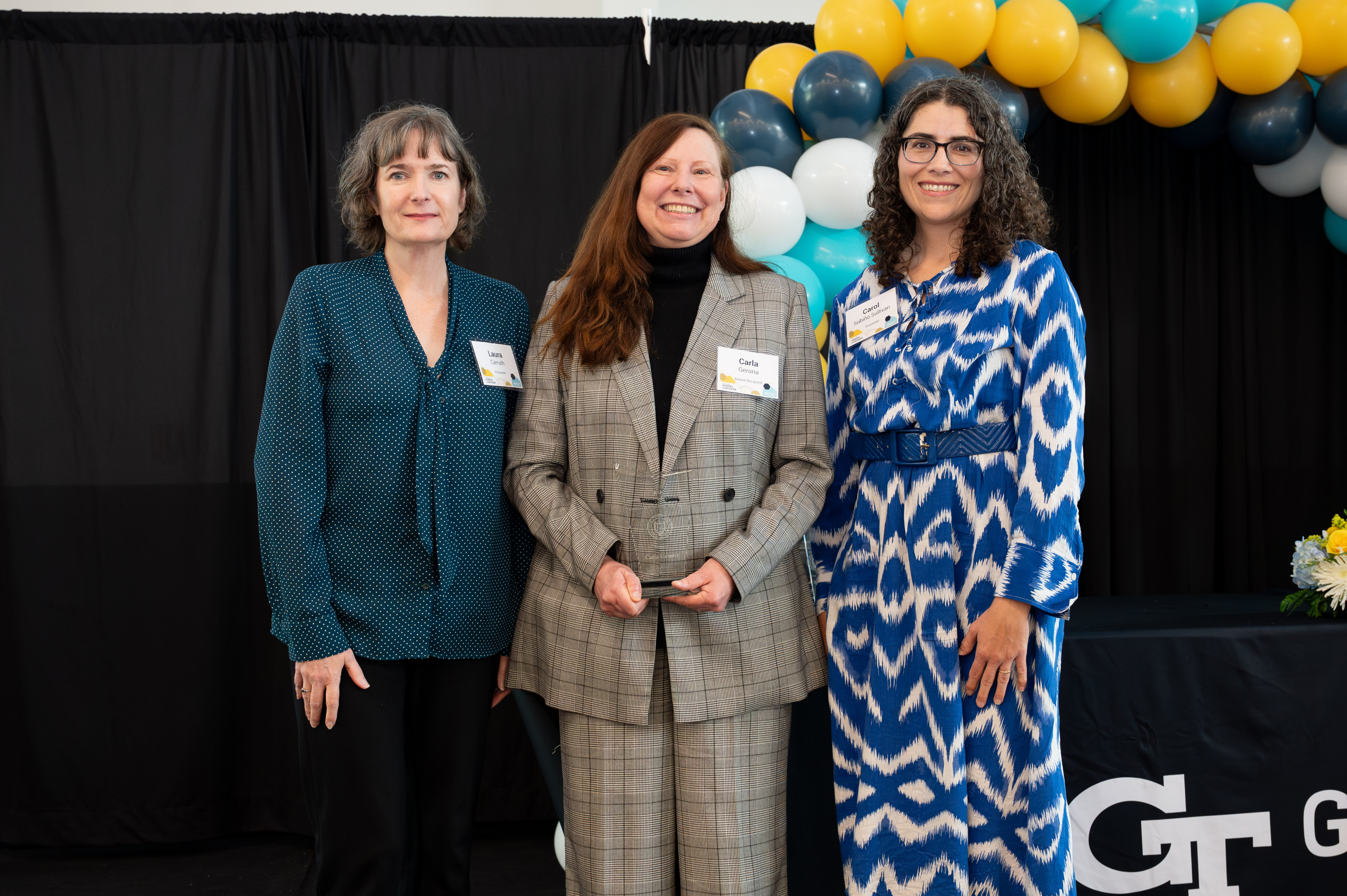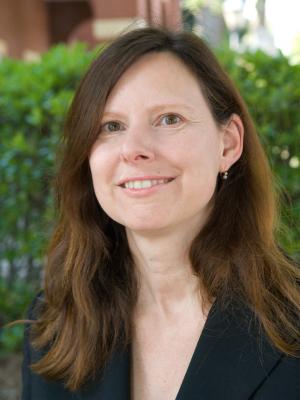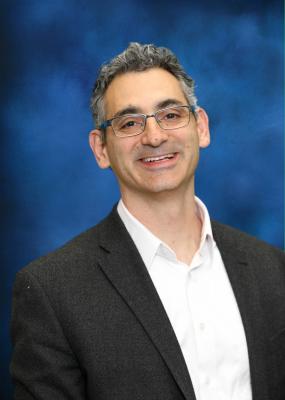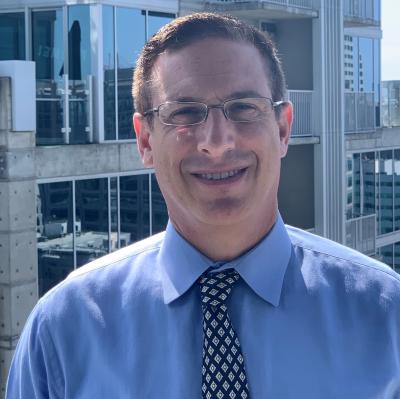This award is open to full-time faculty of any rank who increase student learning outside  the traditional curriculum and help Georgia Tech achieve its strategic goal of graduating global citizens who can contribute to all sectors of society. Initiatives may involve formal or informal out-of-class learning experiences that engage undergraduate and/or graduate students in opportunities to develop respect for other cultures, explore the leadership qualities and ethical behaviors necessary to contribute to society, and/or build on their innovative and entrepreneurial talents in order to have a positive impact on local, state, national and/or international arenas. The award recipient will receive $3,000, with up to one award being given annually funded by the Jack and Francis Mundy fund.
the traditional curriculum and help Georgia Tech achieve its strategic goal of graduating global citizens who can contribute to all sectors of society. Initiatives may involve formal or informal out-of-class learning experiences that engage undergraduate and/or graduate students in opportunities to develop respect for other cultures, explore the leadership qualities and ethical behaviors necessary to contribute to society, and/or build on their innovative and entrepreneurial talents in order to have a positive impact on local, state, national and/or international arenas. The award recipient will receive $3,000, with up to one award being given annually funded by the Jack and Francis Mundy fund.
Questions? Contact Carol Subiño Sullivan.
Timeline
- Packets are due by Friday, February 14, 2025 at 11:59pm.
- Award recipients will be honored at a campus celebration, date and format to be determined by the institute committee.
- Names and nomination packets of the award winners will be posted on the CTL Faculty Award website..
- Names of winners will be added to the Teaching Awards wall located in the Clough Undergraduate Commons.
Eligibility Criteria
- Any faculty member of any rank who teaches undergraduate and/or graduate students in for-credit courses who is interested in increasing student learning outside the traditional curriculum.
- The faculty member may partner with other campus constituents and educational stakeholders.
- Self-nominations are encouraged.
Nomination Materials
The nomination packet (which should be no more than 15 pages) should be submitted as a PDF file to the Georgia Tech awards portal: https://gatech.infoready4.com. It should include the following items:
- Table of contents for the packet.
- Description of the co-curricular initiative, including the objectives, the intended audience, the targeted learning outcomes, and the approach taken.
- Description of how the initiative has been evaluated, including documentation of how the objectives were met, the extent to which the learning outcomes were achieved, and the benefits derived from the initiative.
- Please solicit five letters of support for your application. These letters of support should be from the following individuals:
*Candidate's department chair and/or appropriate sponsor or partner.
*One colleague who has observed the innovation.
*Three students who have participated in the initiative.
Review Process and Selection Criteria
The Center for Teaching and Learning establishes a committee consisting of previous Georgia Tech educational award winners to review the nomination packets and select the winners of this award. Each nominee's submission of materials is reviewed in the context of departmental and institutional standards. Evaluation/endorsement of the nominee's exemplary performance is provided by letters from the department chair, a campus colleague, and students. The committee will consider the following criteria:
- Fit of the initiative with Georgia Tech’s strategic goal of graduating global citizens who can contribute to society.
- Ability of the initiative to extend student learning outside the classroom.
- Inclusion of hands-on active learning opportunities that give students a chance to work toward, practice, and ultimately achieve the targeted outcomes.
- An implementation plan that promotes continued reflection and learning.
- An assessment plan that evaluates the impact of the co-curricular initiative on student learning and/or the student experience.
- The impact of the innovation on the quality of the teaching and learning environment at Georgia Tech.
Winners 2024
 Carla Gerona, History and Sociology (nomination packet)
Carla Gerona, History and Sociology (nomination packet)
For over a decade, Gerona has developed innovative approaches to teaching early American history of the local Atlanta region. In her classes, students engage in non-traditional activities that help them “develop respect for other cultures, ”through respect for voices that have been excluded from our own culture. Students work on authentic assignments that engage a broad audience, including hands-on museum exhibits and digital storytelling publicly through the digital platform Southern Trails in Early American History.

 Lawrence Rubin, International Affairs, and Zachary Taylor, Public Policy (nomination packet)
Lawrence Rubin, International Affairs, and Zachary Taylor, Public Policy (nomination packet)
Rubin and Taylor created GTDC: Pathways to Policy as a Global at Home program in 2023, giving students a Washington DC-based experience that combines a course with internships, mentorships, networking, and other extra-curricular activities. After only one year, this program is already making a positive impact, fostering interest in students without prior background in public policy through experience, mentorship, and connections with alumni.
Past Winners
Pamela Pollet, Senior Research Scientist, Chemistry and Biochemistry and Eric Lewis, Literature Media and Communication (Nomination Packet)
The course “Talk like a scientist, but not too much” was envisioned and designed as a co-curricular course to prepare the next generation of scientists and science communicators. The course is a convergent, multidisciplinary capstone that intentionally embeds effective and tailored communication, sound science, social engagement and activism, and public policy and legislation. It was enriching to work across disciplines and bring to the students a multi-faceted perspective from both multiple academic and corporate worlds, thanks to our guest speakers.
Aselia Urmanbetova, Academic Professional, Economics (Nomination Packet)
As faculty advisor for the Economics Club and the Georgia Tech chapter of ODE, The Economics Honor Society, Dr. Urmanbetova has revitalized both clubs. Her efforts have led to significant membership growth, the creation of an interinstitutional collaborative of Atlanta-area econ clubs for networking, and an increase in events focused on career development and research. Her dedication enhances the experiences of students, particularly those from underrepresented backgrounds, and fosters a sense of community and belonging. Dr. Urmanbetova's collaborative work with faculty and staff extends her impact beyond Georgia Tech, creating a scalable model for student engagement, professional socialization, and learning within a friendly and sustainable setting.
2022
Jake Soper - Chemistry and Biology (Nomination Packet)
Dr. Jake Soper has worked closely with the Honors Program, Serve-Learn-Sustain, and the School of Public Policy to develop a curriculum that examines the intersections of science and public policy. The curriculum transforms a course that Soper has taught for many years: Chemical Principles II (CHEM 1212K). With assistance from the School of Public Policy, he created an Honors Program subsection for the course that incorporates governance, ethics, and communication related to science and sustainability. Roberta Berry, director of the Honors Program, says, “Dr. Soper has designed a class that powerfully connects learning about theory and practice in chemistry with learning about theory and practice in public policy and the related challenges of diversity in culture and perspective.”
Olufisayo Omojokun and Mary Hudachek-Buswell - Computing Instruction (Nomination Packet)
In order to meet the student demand for CS 1331 and CS 1332, Drs. Fisayo Omojokun and Mary Hudachek-Buswell worked together to formulate a virtual version of the courses for the edX MOOC platform. They developed online course content for students at Georgia Tech and beyond to learn, developing materials within the website that allowed for users to engage in the course without needing to download additional software. Since the course was launched in early 2021, Hudachek-Buswell and Omojokun have taught over 25,000 students internationally. Executive Director of Online Education David Joyner states: “The work of Drs. Hudachek-Buswell and Omojokun has been revolutionary in expanding global access to a Georgia Tech education, both in making the content available and in expanding the number of students who would consider joining Georgia Tech in the first place.”
2021
Monica Halka--Honors, Paul Verhaeghen--Psychology, and Ameet Doshi--Library (Nomination Packet)
Students at Georgia Tech are very stressed out, even before the pandemic. 89.9% of Georgia Tech students reported being very stressed and 20-25% scored above the depression threshold on a standardized instrument. In response, the Honors Program developed a GT 1000 course that teaches students active mindfulness practices that can improve focus, awareness, memory, creativity, mental balance, clarity, and emotional well-being. Mindfulness training has been shown to be effective in improving cognition, stress, and wellbeing in student populations. Halka, Verhaeghen, and Doshi offer 3-6 sections of this course each Fall since 2016, each of which incorporates practices from their particular areas of mindfulness expertise. Over 350 students have taken the course as of Fall 2020, and 250 more students have learned about mindfulness through guest presentations in other courses and forums. One student shared that, “Without this course, I wouldn’t have the mental resilience skills needed to cope with and complete rigorous coursework and extracurricular expectations. I am far more equipped to perform the best that I can and contribute to society as an efficient, calm, and collected leader.” Members of the team are working to expand the reach of their work, including developing a course for the Georgia Tech Police Department and offering the course through forums available to the broader Georgia Tech community.
2020
Yevgenya (Jenny) Strakovsky, Assistant Director of Career Education and Graduate Programs, School of Modern Languages (Nomination Packet)
With dedication to her students, school, and discipline, Dr. Jenny Strakovsky has created a suite of career development programs for both undergraduates and graduate students in line with the Provost’s Whole Student Initiative, with a special focus on developing “t-shaped” people who have both a breadth of skills and a depth of knowledge that allows them to be adaptable and engaged in any situation. Her co-curricular programs include three career design studios focusing on self-assessment, career exploration, and job advising as well as “applied humanities labs” which allow students to apply their cross-cultural humanities skills to real local challenges. Professor and Chair of the School of Modern Languages, Dr. Anna Westerstahl Stenport, says Dr. Strakovsky’s “efforts have led to a turnaround in the School’s entire curricular approach, integrating a much stronger emphasis on 21st century critical skills, whole person education, culture building, and global competencies.”
2018 (Nomination Packet)
Kim M. Cobb, Earth and Atmospheric Sciences
Beril L. Toktay, Scheller College of Business
2017
Jillann Hertel, Literature, Media, and Communication (Nomination Packet)
2016
Wilbur A. Lam, Biomedical Engineering, GT/Emory (Nomination Packet)
2015 (Nomination Packet)
Andreas S. Bommarius, Chemical and Biomolecular Engineering
Mark R. Prausnitz, Chemical and Biomolecular Engineering
2014
Jennifer K. Leavey, College of Sciences (Nomination Packet)
2013
Kelly R. Comfort, Modern Languages
2012
Cara L. Gormally, Biology
►CTL Junior Faculty Teaching Excellence
►Curriculum Innovation
►Education Partnership
►Faculty Award for Academic Outreach
►Geoffrey G. Eichholz Faculty Teaching Award
►Innovation and Excellence in Laboratory Instruction
►Innovation in Co-curricular Education
►Scholarship of Teaching and Learning
►Teaching Excellence Award for Online Teaching
►Undergraduate Educator Award
►Student Recognition of Excellence in Teaching: Annual CIOS Award
►Student Recognition of Excellence in Teaching: Semester Honor Roll